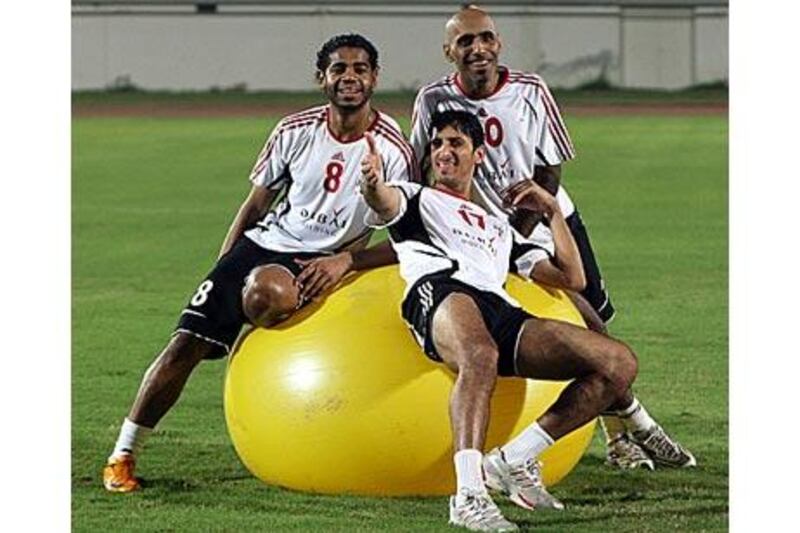If there were a single cause for the UAE's failure to qualify for football's World Cup finals yesterday, it may well have been the team's fondness for fast food, according to a scathing critique by one of the team's star players. Saleh Obaid, a defender, said players who took part in qualifying matches for next year's World Cup may have hurt their game by devouring fast-food meals twice daily leading up to matches.
The UAE's Asian qualifying campaign ended with a 1-0 defeat to Iran in Tehran last night. But the result was irrelevant as the UAE had already been eliminated. With two home games in Abu Dhabi to kick off the final qualification stage, the UAE squad should have come out blazing against North Korea and Saudi Arabia in September 2008. Instead they slumped to two 2-1 defeats within three days. It was a sorry start for a team that felt they should have been able to compete against the likes of Group 2 rivals Saudi Arabia and Iran, but one that Obaid considers the result of poor preparation in the run-up to their first match.
"You know what we eat for dinner and lunch? Professional players - what kind of food do you think?" asked Obaid. "We eat from McDonald's. Everyone eats from McDonald's. No good food." McDonald's is one of the official sponsors of the Fifa tournament. "When you go for a big tournament, a World Cup, and you have a reputation to work against Saudi Arabia, Australia, Japan, South Korea, not easy games, and you are not prepared well, then of course you will lose before you go to the game."
Obaid also put the team's performance down to tired legs, poor preparation on the training field and a lack of international friendlies, which had left them ill-prepared to face the challenge. "We didn't eat good, we didn't sleep good. We didn't find games, we only played two games, one against Algeria, but it's not enough," he said. "When we went to Switzerland we weren't prepared. We went there and trained, but we hadn't rested after the season, and we only played one game, not even against a national team. International teams need to play against other international teams, not against clubs.
"You need to play six or seven games. Saudi Arabia played eight international games, not normal games, because they prepared really good. That first defeat to North Korea, that was the end for us. We haven't been prepared properly since then." With the UAE on the lookout for a new manager, Obaid hopes a change of managerial style will bring better understanding of the mentality of players in the UAE and the need for greater preparation for the big games.
sports@thenational.ae





